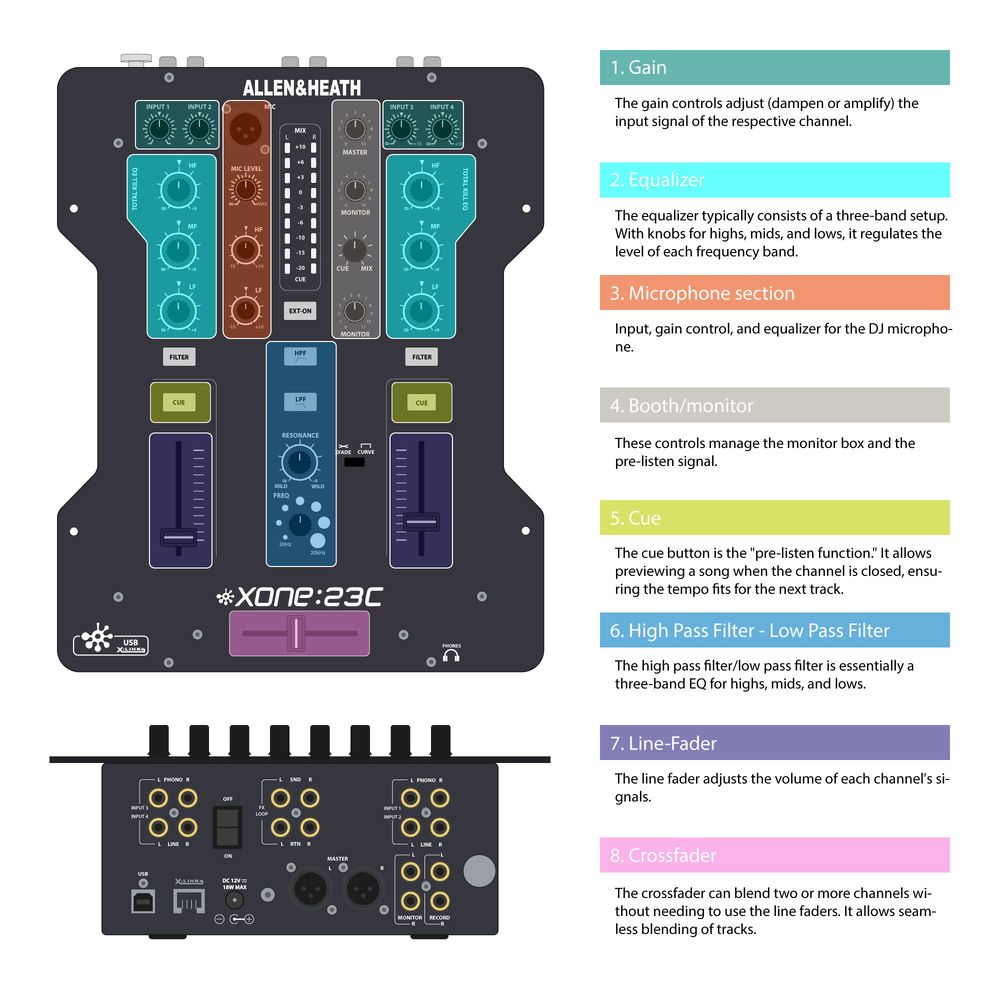7. DJ Mixers
Today, mixers designed for DJs with specific features to simplify DJing are becoming increasingly popular. DJ mixers usually come with just two stereo channels plus a microphone channel, appearing modestly equipped at first glance, but their DJ-tailored functions make them real specialists.

Item No. 336936 - Allen & Heath Xone 23C
Among the special tools of DJ mixers is undoubtedly the crossfader, responsible for the volume ratio between the first and second playback source (decks). Generally, the longer the crossfader's travel, the smoother DJs can create transitions between the two sources. An adjustable crossfader is a very useful feature on DJ mixers.
Another crucial aspect DJs can look into is the quality and volume of the headphone preamps, providing the headphone output either with the mix or a pre-listened signal. Integrated DJ effects or filters might also be on some wish lists, and many mixers offer this feature. An advanced feature more commonly found in digital mixers is beat detection, helping DJs seamlessly transition between two tracks with a continuous beat. Regular users might want to ensure that their new DJ mixer has many robust metal parts and particularly that frequently used parts, like the crossfader, can be easily replaced.
Potential buyers might consider beforehand how many and what types of signal sources they want to connect to the DJ mixer. Besides the classic RCA connections with designated preamps for turntables, tape decks, etc., nowadays many DJ mixers can also capture signals from smartphones and laptops via USB or Bluetooth. An XLR microphone input is usually mandatory. Also, having a bit of variety in the outputs of the DJ mixer doesn't hurt. If there are both unbalanced and balanced outputs in RCA, jack, and/or XLR formats, the DJ mixer can be used in diverse ways in the long run.



